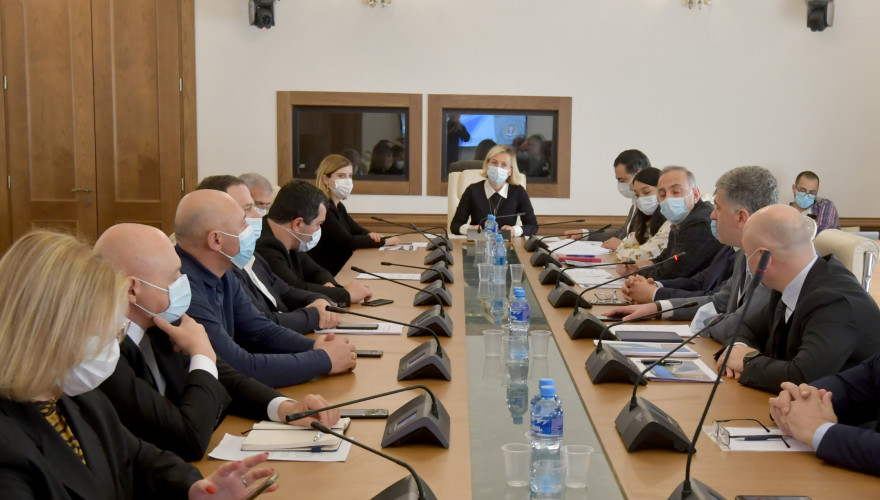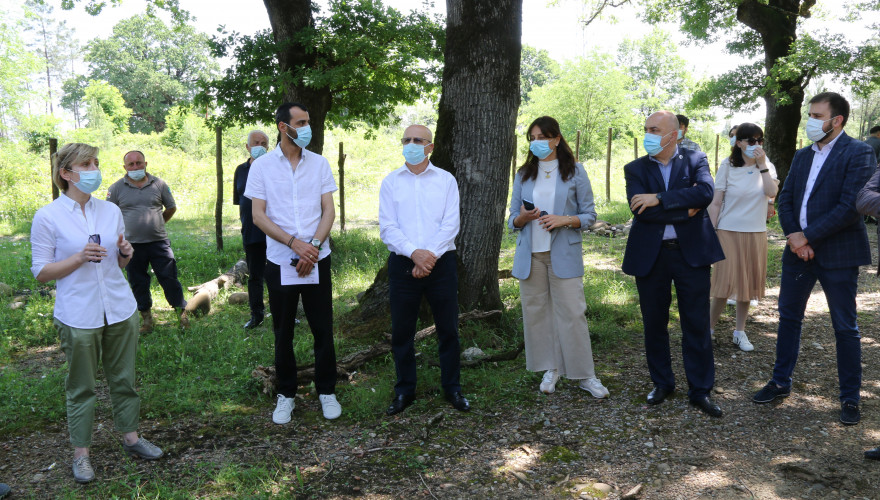Agrarian Issues Committee Initiating Launch of Thematic Inquiry

The Committee, presided by the Chair, Nino Tsilosani, initiated a new Thematic Inquiry on Impact of the COVID-19 Pandemic on the Production and Sale of Agricultural Products.
According to N. Tsilosani, the aim of the thematic inquiry is to study the impact of the COVID-19 pandemic on the production, demand and consumption of the agricultural and food sectors. According to her, the initiator of the thematic inquiry is Khatia Tsilosania.
For her part, Kh. Tsilosani informed her colleagues about the essence and goals of the thematic inquiry.
"Nevertheless, we all know that there are challenges and there is a very important agenda to better plan where state interventions should be made in order to contribute, on the one hand, to the steady development of the positive results achieved in the sector and, on the other hand, identify the needs that will be important to further support the agricultural sector. The country is also elaborating on a ten-year plan for economic development, and we strive to give the right direction to this thematic inquiry and analyze the main negative consequences that have affected the development of the sector”, - Kh. Tsilosani noted.
Thus, as part of the thematic inquiry, the research team will examine trends in the production, demand and consumption of agricultural products and foodstuffs before and after the Coronavirus, and measures taken by the state. The study will analyze the impact of the virus and develop recommendations for government agencies to introduce and implement appropriate measures.
The effective date of the thematic inquiry is through June 21, 2021, after which the presentation of the research results will be made by Khatia Tsilosani.
The team will be composed of the MPs: Nino Tsilosani, Shalva Kereselidze and Goderdzi Chankseliani.
The Committee unanimously supported the launch of a thematic inquiry and the creation of an appropriate team.
N. Tsilosani responded to the statement made by two members of the Committee - First Deputy Chairman Alexander Motserelia and Shalva Kereselidze about leaving the Georgian Dream - "despite their political decision, they remain supporters of the agricultural sector and will have constructive cooperation on the issues to achieve the common goals”.
The Committee heard the 2020 Activity Report by the Georgian Amelioration LLC.
"Georgian Amelioration" is carrying out rehabilitation works on reclamation infrastructure facilities. In addition, the company is a supplier of irrigation and drainage services in the country. The strategic goals of the company are: to increase the area of water-provided lands; increase water consumer engagement for complex improvements in water supply efficiency; reforming the field to achieve viability and sustainability, etc.
David Tsitlidze, Director General of the Company, presented information on the activities carried out during the reporting period.
Earlier, Deputy Minister of Environment and Agriculture Otar Shamugia informed the Committee members about the current measures taken in recent years in the field of land amelioration, the current situation in the field and future plans.
According to the Deputy Minister, active financing of the sector started in 2013 and as a result of large-scale restoration and rehabilitation works, the irrigated and drained land areas in the country have significantly increased. During this period, almost 400 million GEL has been spent on both restoration and rehabilitation works. Today the condition of the main canals is much better and the focus is already on the rehabilitation of internal networks. The nearest plans are to establish water consumer organizations, implement water accounting and achieve that the tariff is tied to the amount of water consumed.
According to the Director General of Georgian Amelioration, last year was difficult for their agency due to the pandemic, but given that the activity is aimed at providing continuous services, the work did not actually stop. Accordingly, rehabilitation and construction works were continued.
The meeting continued in a dialogue mode, Committee members, single-mandate MPs, local self-government representatives invited to the meeting had specific suggestions and questions to the agency about the situation on the ground. As mentioned, as a result of the successes achieved, problems still remain in places as the population is not fully provided with irrigation water.
Specific agreements for the regions were reached at the Committee sitting, and according to the results of the discussion, the Committee will finally develop relevant recommendations.
The Committee took note of the report submitted.





